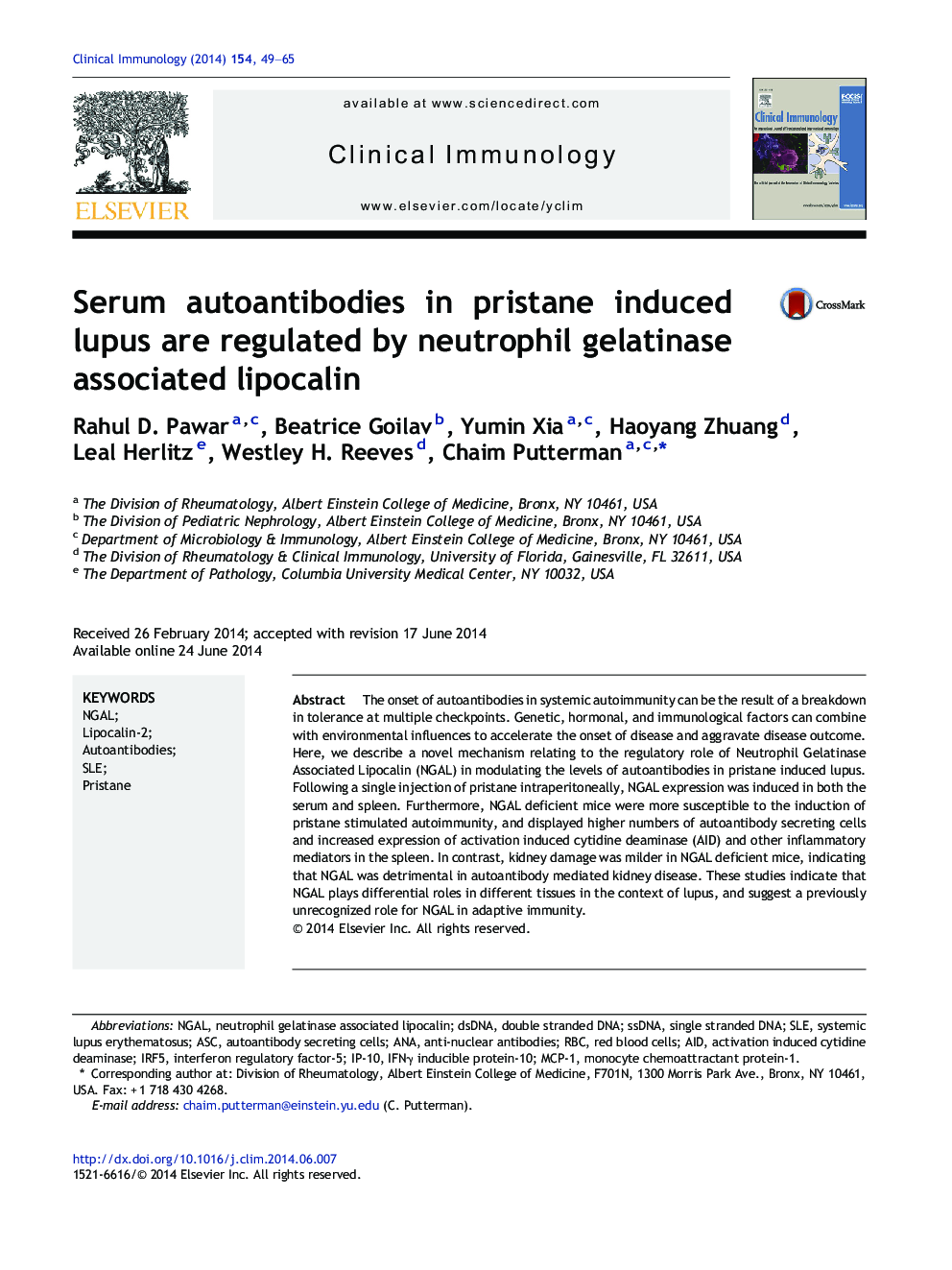| Article ID | Journal | Published Year | Pages | File Type |
|---|---|---|---|---|
| 3256889 | Clinical Immunology | 2014 | 17 Pages |
•NGAL regulates the anti-nuclear antibody response in pristane induced lupus.•NGAL decreases autoantibody secreting cells following a pristane challenge.•Pristane-challenged NGAL deficient mice are protected from renal injury.•Pristane stimulates NGAL secretion by peritoneal macrophages and splenocytes.
The onset of autoantibodies in systemic autoimmunity can be the result of a breakdown in tolerance at multiple checkpoints. Genetic, hormonal, and immunological factors can combine with environmental influences to accelerate the onset of disease and aggravate disease outcome. Here, we describe a novel mechanism relating to the regulatory role of Neutrophil Gelatinase Associated Lipocalin (NGAL) in modulating the levels of autoantibodies in pristane induced lupus. Following a single injection of pristane intraperitoneally, NGAL expression was induced in both the serum and spleen. Furthermore, NGAL deficient mice were more susceptible to the induction of pristane stimulated autoimmunity, and displayed higher numbers of autoantibody secreting cells and increased expression of activation induced cytidine deaminase (AID) and other inflammatory mediators in the spleen. In contrast, kidney damage was milder in NGAL deficient mice, indicating that NGAL was detrimental in autoantibody mediated kidney disease. These studies indicate that NGAL plays differential roles in different tissues in the context of lupus, and suggest a previously unrecognized role for NGAL in adaptive immunity.
